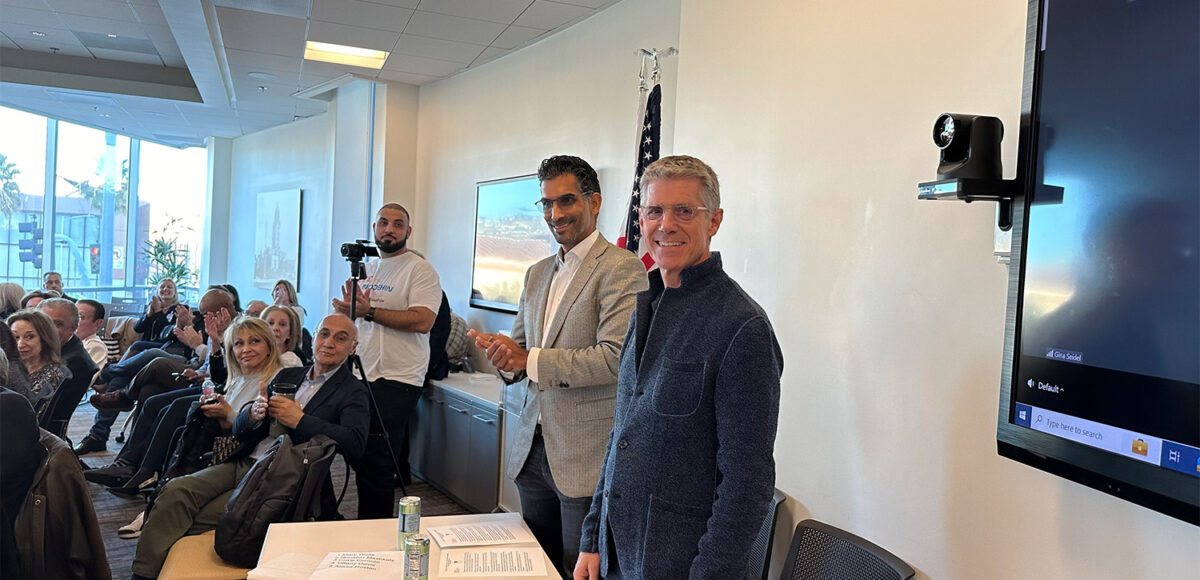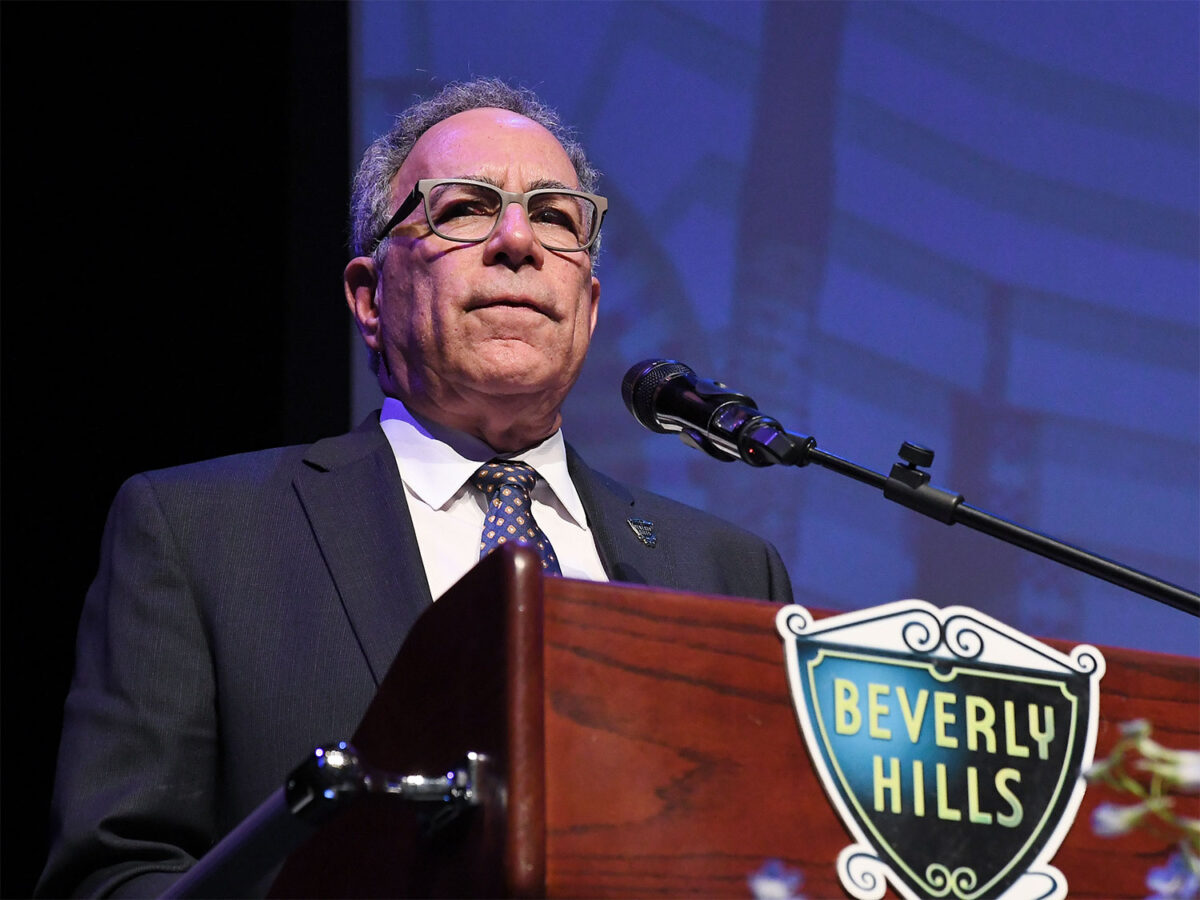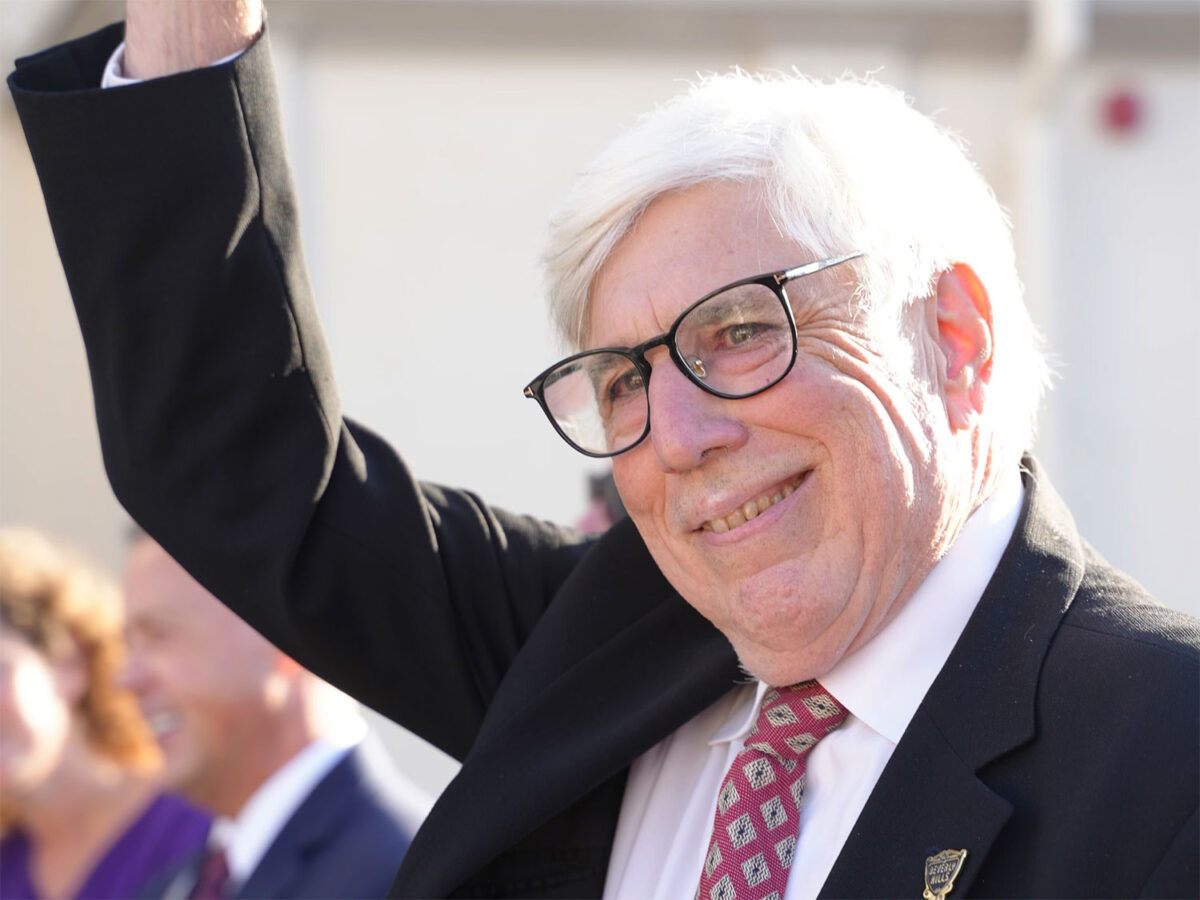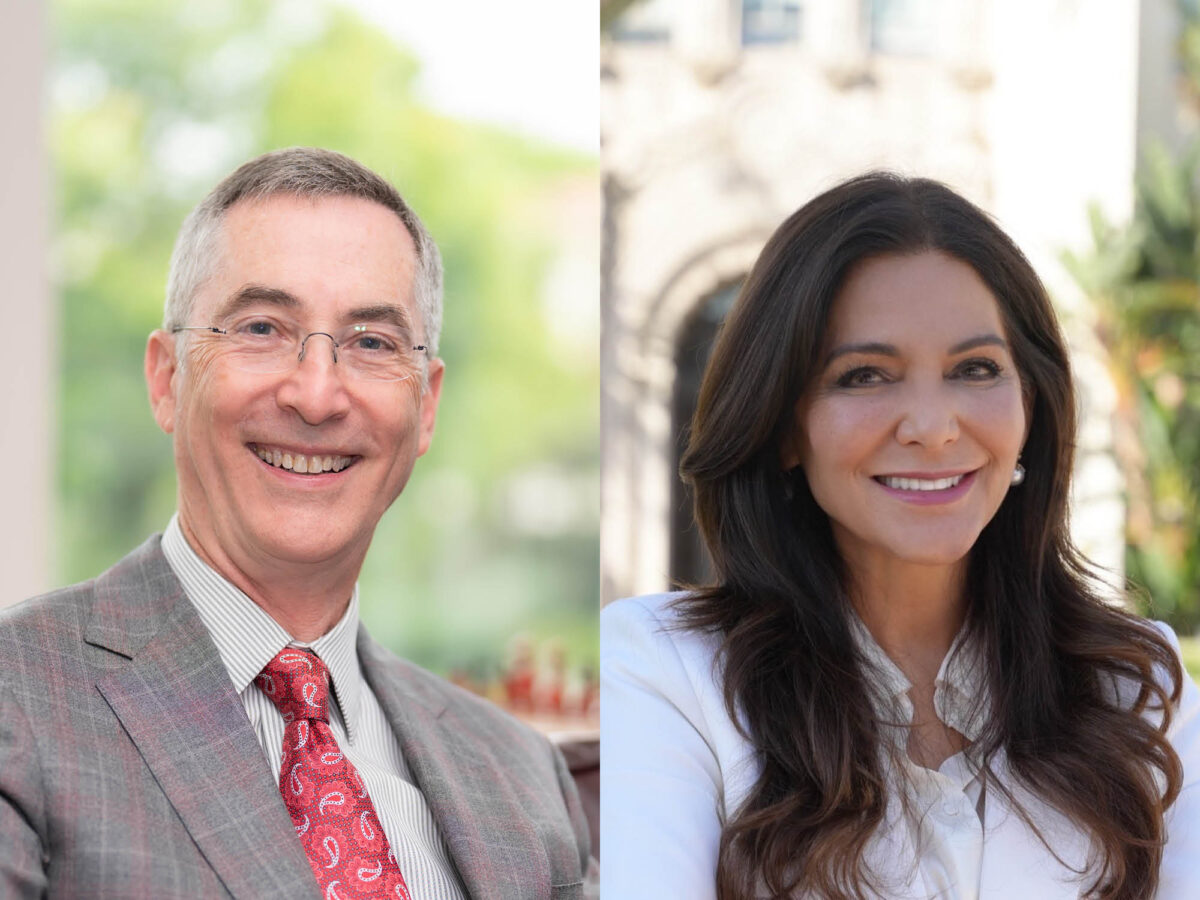For the first time this election season, all 10 candidates in the Beverly Hills City Council race made their case during the Jan. 11 forum hosted by the Beverly Hills Chamber of Commerce.
As pockets of the city struggle with underdevelopment, residents prepare for the Metro Purple (D) Line Extension and antisemitic incidents exacerbate concerns about crime, the candidates said it was time to craft a new vision for the future of Beverly Hills.
“We’re certainly interested in what people’s viewpoints are and how to grow the city and not stay stagnant,” Chamber President and CEO Todd Johnson said. “We want to continue to think outside the box and bring the types of businesses and attractions … that make our city the luxury capital of the world.”
The Chamber has held similar forums for at least a decade, and Johnson said they play a pivotal role in helping business stakeholders understand how the candidates will support their priorities. Johnson stressed that the Chamber is not a political organization, and the questions focused on business concerns including public safety and economic development. (The Beverly Hills Chamber of Commerce Leadership PAC will likely make an endorsement, however.)
The forum was split into two panels of five candidates, each of whom gave opening statements before fielding questions from the Board Chair David Mirharooni and Board member Chris Bonbright.
The first panel included Mary Wells, Nooshin Meshkaty, Craig Corman, Tiffany Davis and Alissa Roston, while the second panel included Myra Demeter, Russell Stuart, Sharon Persovski, Hamid Omrani and Robin Rowe.
Mirharooni and Bonbright asked candidates about their views on crime and proposed public safety initiatives, their plans to improve the city’s business climate and their sources of campaign funding. Candidates were also asked whether they would support a ceasefire between Israel and Hamas and to explain their positions on the Cheval Blanc project and their general thoughts on the city’s planning process.
With a collegial atmosphere, the candidates largely agreed on the city’s most pressing issues and shared the same priorities, with improving public safety and certifying the housing element at the top of the list.
Corman said the city’s prior attempts to certify the housing element had relied solely on adding mixed-use development in commercial zones, but this strategy is not a cure-all. Failing to certify the housing element has left the city vulnerable to builder’s remedy projects, which allow developers to bypass most zoning regulations in the city, he added.
In addition to submitting an adequate housing element, it was vital that the city fight builders remedy projects in court, Corman said.
“This is an existential crisis,” Corman said. “We have to get ahold of it, and we have to solve it now.”
Roston added that housing is a regional issue, and many cities across Southern California have also failed to certify their housing elements. To help meet the state’s requirements, Roston suggested developing affordable and market-rate housing on city-owned land in the industrial section and building a new mixed-use building at the current Metro staging yard on the corner of Gale Drive and Wilshire Boulevard.
While all candidates vowed to tamp down on crime and bolster public safety, there was some disagreement about the best strategies for doing so and the role that private security officers should play. Davis said that private security officers should have a more visible presence throughout the city, while Stuart said hiring more police and expanding their budget is the only effective crime deterrent.
Though the entire field acknowledged the city’s limited influence on the policies of Los Angeles District Attorney George Gascón, they said increasing the number of patrol officers and hiring a city prosecutor could make a local difference.
The question of public safety has become newly urgent following the Oct. 7 terror attacks on Israel and the subsequent spike in antisemitic incidents, and there was unanimous agreement about the need to protect Jewish residents and institutions.
“Our city is under attack,” Demeter said. “I feel I am doing what I can, and I would like everybody else here to use their voice or to do what they can to fight antisemitism.”
Though the panelists were unanimous in supporting Israel’s fight until Hamas had been eliminated, some mentioned they would also support increased aid to civilians in Gaza. Each panelist declined to support a resolution in favor of a ceasefire.
Such a resolution “would ignore the hostages that are in the captivity of Hamas,” Meshkaty said. “I will not be for passing a resolution … while we have not responded to what we are doing with the hostages in captivity.”
Reflecting on the Cheval Blanc project, each candidate said that they had voted in favor of the project, though many acknowledged it revealed longstanding flaws in the city’s planning process and highlighted the need for increased community engagement.
“I think we have a disconnect, fundamentally, with communication to the community,” Davis said. “Many residents feel things are hidden; things are kept quiet on purpose … so that council doesn’t need to hear from them.”
The candidates agreed that the city’s planning process also needs to be tweaked, with a specific emphasis on streamlining and making it easier for new projects to get approved, and Wells advocated for a committee to review the general plan.
The candidates also spoke about the need to expand mixed-use development, and there was broad consensus that building mixed-use projects near the new Metro station and other parts of the city could revitalize overlooked neighborhoods.
They also agreed the city should diversify its dining and entertainment options to attract new businesses that bring a younger, wider clientele.
“We need to focus on bringing in immersive businesses, experiential businesses … that are new to our city,” Meshkaty said.
Johnson was pleased with the forum’s turnout, as approximately 85 people attended in person and approximately 45 attended on Zoom, though the broadcast was not recorded due to technical difficulties, he said.
As election season ramps up, the Chamber and its associated political action committee will continue to hold events that help business stakeholders feel confident when filling out their ballot, Johnson added.
Additional organizations are expected to hold candidate forums in the upcoming weeks as well. As of press time, confirmed dates include Feb. 1 for the Southwest Beverly Hills Homeowners Association forum at City Hall.







